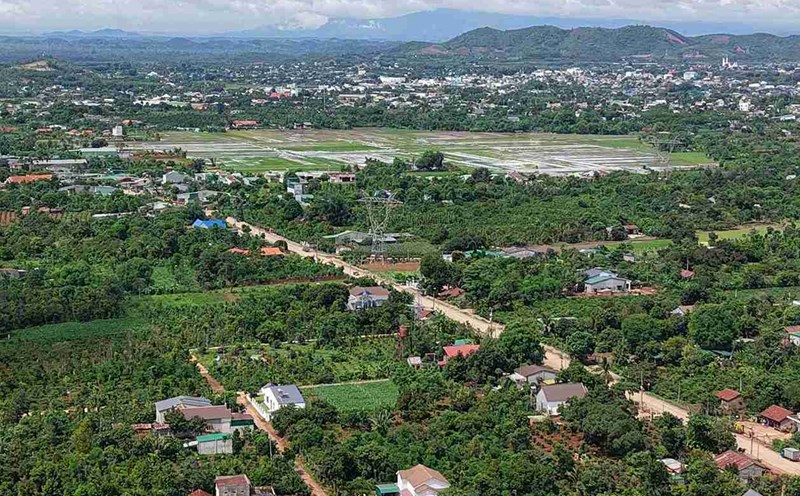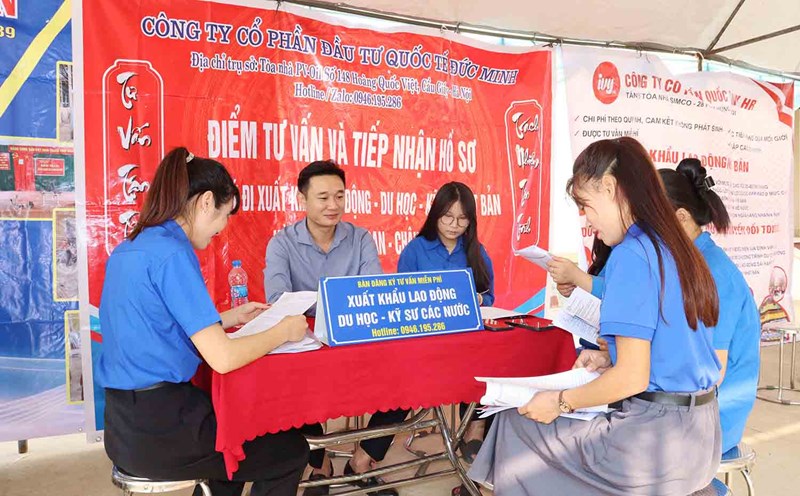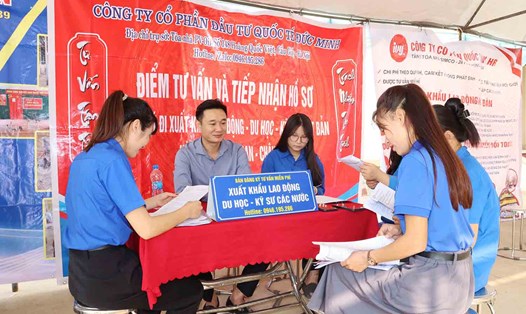In recent times, officers and soldiers of the La Lay International Border Guard Station (Quang Tri Border Guard) have deployed many practical models to help border residents escape poverty; thereby strengthening the solidarity between the army and people in the Truong Son range.
La Lay commune is a locality with more than 95% of ethnic minorities being Bru - Van Kieu and Pa Ko people.
For people on the border, the methods of raising livestock and growing crops are still limited, and the thinking of economic development is still outdated. Therefore, the rate of poor and near-poor households in La Lay commune accounts for over 50%.
Since 2018, the Border Guard of Quang Tri province has launched the "Stream Breeding Startup" Program.
The family of Mr. Ho Van Thuop, A Dang village (La Lay commune, Quang Tri province) is one of the first households to receive a pair of breeding goats from the La Lay International Border Guard Station to develop the family economy.
Mr. Ho Van Thuo shared that Border Guard officers and soldiers not only presented breeding goats but also closely followed each household, giving specific instructions from feeding techniques, disease vaccination to developing into flocks.
Up to now, the family's goat herd has developed 20 more. When the number of goats increased, the family took out a pair of breeding goats and sent them to the Organizing Committee of the program to give to poor households to replicate this model.
Currently, this program has donated breeding goats to 2-3 villages, helping people develop the economy.

Similar to the " started-up dike" model, the "Round-up pig" model comes from the mobilization and support of officers and soldiers of the La Lay International Border Guard Station.
This model has just been implemented since 2024 and gave 3 pairs of breeding pigs worth 3 million VND/pair to households members of the Women's Union of La Lay commune.
Households that are given breeding pigs will take care of and raise local pigs, breeding and creating flocks. When the economy of these households has developed, the breeding pigs will be donated to the program to continue supporting other poor households.
Major Nguyen Van Tam - Deputy Political Commissar of the La Lay International Border Guard Station (Quang Tri Provincial Border Guard Command) - said that in order to help people change the structure of crops and livestock, the unit has supported many households with breeding animals to raise and develop poultry flocks.
In addition to the model of supporting breeding goats and pigs, the unit also deploys many other models such as supporting breeding cows to give to many villages bordering the Vietnam - Laos border.
Along with supporting breeding animals, the unit also propagated and guided people to raise livestock, build barns, and encouraged people to focus on economic development to eliminate hunger and reduce poverty.
Currently, the models of " roundabout pigs" or "Start-up ducks" all bring practical results; the pigs and goats are all developed and reproduced well.
That is a clear demonstration of the change in the border area, where the models of "S treasure tribe starting a business" and " Roundabout pigs" have become a "connector" to help ethnic minorities gradually escape poverty.
With the support of the Border Guard, the La Lay commune government has proactively reviewed and selected households that are truly disadvantaged but determined to rise up to participate in economic development models, said Mr. Pham Xuan Khanh - Secretary of the La Lay commune Party Committee.
The government also closely coordinates with associations and unions to monitor, guide, and ensure that people are raised well and for the right purpose.
According to him, with the cooperation of the government, social organizations and especially the support of the Border Guard, the appearance of La Lay commune has increasingly improved; people's lives have improved, the poverty rate has decreased.
The practical and persistent actions of the blue-plate soldiers not only keep the border strong but also give many families in the border area hope of escaping poverty.










